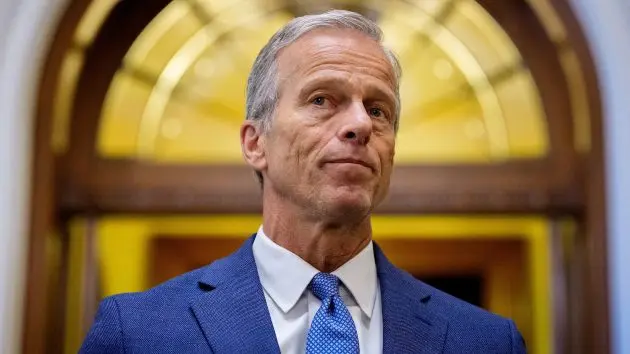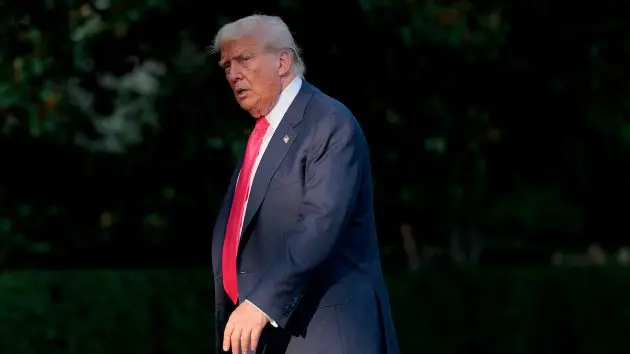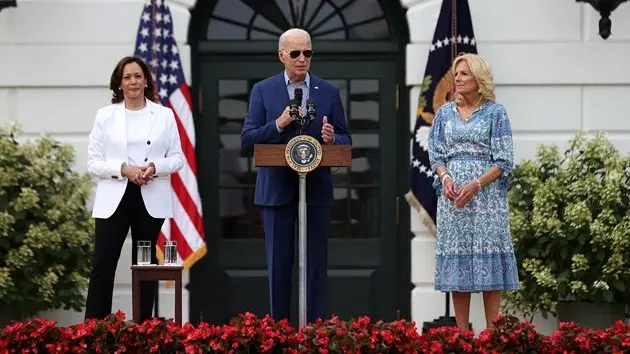(WASHINGTON) — Senate Republicans are expected to move forward on Wednesday with efforts to codify some of the Department of Government Efficiency cuts to programs such as the U.S. Agency for International Development (USAID) and public broadcasting.
Their process to advance the package, submitted by the White House, began on Tuesday night when Republicans narrowly advanced the $9 billion rescissions package with the assist of the tie-breaking vote of Vice President J.D. Vance.
Three Republicans crossed the aisle on Tuesday night to cast votes against the bill after raising concerns about the lack of detail in the White House’s rescission plan: Sens. Susan Collins, Lisa Murkowski and Mitch McConnell. It’s likely that Murkowski, Collins and McConnell will maintain their positions against the package.
“I have several concerns, specific concerns, about this package,” Murkowski said on the Senate floor before casting her votes. “First, it’s unclear to me how the specific accounts that are targeted for the rescission are going to be impacted. Neither the administration or others have been able to provide that, that very clear, very transparent explanation about the programs and the priorities that are going to be cut as a result of the measure.”
“We’ve got big, broad categories, but I haven’t been given the comfort, if you will, that we’re not impacting maternal and child health, that we’re not impacting HIV, AIDS, that we’re not impacting nutrition programs and programs related to tuberculosis, malaria, polio, neglected tropical disease, pandemic prevention, family planning,” she continued.
Collins, the chair of the Senate Appropriations Committee, said in a statement after her vote that “the rescissions package has a big problem — nobody really knows what program reductions are in it.” Collins added that for senators to carry out their “constitutional responsibility, we should know exactly what programs are affected and the consequences of rescissions.”
Majority Leader John Thune told reporters Wednesday morning that the trio raised a “fair point” about the need for greater specificity of the package, but said the Senate would still move forward with the bill later in the day.
“I don’t disagree. I think more specificity would be a good thing, and certainly more detail in terms of how they — you know — what exactly it is that they intend to cut as a result of this,” Thune said. “But I think for the most part, most of our members believe that there was enough detail there to make a good decision about whether or not we want to move forward on the package.”
Office of Management and Budget Director Russ Vought briefed Senate Republicans during their closed-door lunch on Tuesday, after which Thune announced that the Senate version of the bill would exclude cuts to PEPFAR, the popular HIV and AIDS relief program, and also gave assurances that a popular vaccine program, the GAVI Vaccine Alliance, wouldn’t be impacted.
According to Thune, Vought also gave members details on the planned cuts during that meeting.
“Yesterday, what they handed out were all the categories of spending. You know, what there was going to be a balance left, how much they’re going to cut out of each category. And clearly in a lot of these programs there could be more detail, but I think most of our members believe that the administration, and looking at these and through the DOGE process, came up with savings that make sense and that help us achieve hopefully some meaningful reductions in spending that will root out some of the waste, fraud and abuse in these programs,” Thune said.
A “vote-a-rama” — or marathon voting session — on the legislation kicked off Wednesday afternoon, during which both parties are offering unlimited amendments to the bill. The first vote series includes five Democratic-led amendments related to reversing DOGE cuts proposed in the bill.
Democrats are expected to offer a number of amendments to challenge the package. But if Republicans stick together, Democrats will be largely powerless to block or modify this bill in any way. Unlike the megabills we often see with vote-a-ramas, this package is only eight pages long. All Democrats are expected to oppose the legislation, making it so Thune can only afford to lose three of his members with Vance’s tie-breaking vote once again.
It’s likely that the three Republicans who opposed the package on Tuesday will maintain their position on Wednesday.
Murkowski, at the Capitol on Wednesday, suggested that she wouldn’t be swayed by her colleagues or even President Donald Trump about her support for the bill. She raised concerns that this package, which claws back funds already appropriated by Congress, makes it so that lawmakers are not “legislating,” but simply affirming White House direction about policy.
“My obligation is to my constituents and to the Constitution. So I look at the Constitution and say that it is, it is the legislative branch that has the power of the purse. I take that charge personally, and so I’m going to execute on it. The president can say what he’s going to say, but that’s fine. I’m going to do what I’m going to do,” Murkowski said.
“We could have had the votes to keep this from being discharged yesterday, we were one short,” Murkowski said about blocking the bill. “And so today we will have a series of amendments, and we’ll see how that goes.”
If the Senate passes this package, it will have to go back to the House for final passage. The House must pass the bill on or before Friday in order to meet the deadline on this package.
Copyright © 2025, ABC Audio. All rights reserved.






